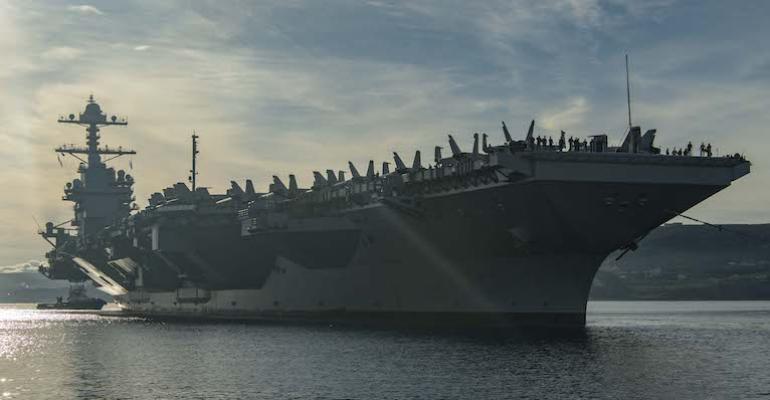
Strategic Maritime Endeavors: Navigating Red Sea Naval Operations
The Red Sea, a region of paramount importance, is a theater for strategic naval operations that shape geopolitical dynamics. This article delves into the multifaceted aspects of Red Sea Naval Operations, offering insights into the challenges and strategic significance that define the maritime landscape.
Geopolitical Context: Foundations of Naval Operations
At the heart of Red Sea Naval Operations lie intricate geopolitical considerations. Historical rivalries, territorial disputes, and global power dynamics contribute to the complexity of naval maneuvers. Understanding the geopolitical context is crucial for comprehending the motivations behind naval operations and the broader regional dynamics at play.
Naval Strategies: Crafting a Maritime Chessboard
Naval strategies employed in the Red Sea play a pivotal role in shaping the geopolitical landscape. Nations craft a maritime chessboard, deploying naval assets to assert dominance, safeguard interests, and project power. The intricacies of naval strategies involve considerations of force projection, presence, and the ability to respond swiftly to emerging challenges.
Security Challenges: Safeguarding Strategic Waterways
Safeguarding strategic waterways is a primary objective of Red Sea Naval Operations. Given the region’s significance as a vital trade route, ensuring the security of maritime traffic becomes imperative. Naval forces grapple with challenges such as piracy, smuggling, and the potential for conflict escalation, all of which impact the stability of critical waterways.
Multinational Collaboration: Coalition Efforts at Sea
In response to the complex security challenges, Red Sea Naval Operations often involve multinational collaboration. Coalitions of nations join forces to address common threats and contribute to regional stability. The cooperative efforts aim to pool resources, share intelligence, and foster a unified front against maritime security challenges in the Red Sea.
Maritime Interdiction: Countering Illicit Activities
Red Sea Naval Operations frequently focus on maritime interdiction to counter illicit activities. Naval forces engage in patrols and surveillance to detect and deter illegal practices such as smuggling and trafficking. The ability to effectively interdict illicit activities at sea is a key component of maintaining maritime security and ensuring the free flow of commerce.
Naval Exercises: Enhancing Operational Capabilities
Naval exercises play a vital role in enhancing the operational capabilities of the forces involved in Red Sea Naval Operations. Through joint exercises, participating nations improve coordination, communication, and interoperability. These exercises not only serve as a deterrent but also prepare naval forces for effective responses to potential security threats.
Humanitarian Assistance: Naval Support in Crisis Response
Beyond security considerations, Red Sea Naval Operations extend support in humanitarian assistance and crisis response. Naval forces are often involved in disaster relief efforts, evacuations, and providing assistance to coastal communities affected by natural disasters or conflicts. The dual role of naval operations encompasses both security and humanitarian dimensions.
Technological Advancements: Innovation in Naval Warfare
The landscape of Red Sea Naval Operations is influenced by technological advancements in naval warfare. From sophisticated surveillance systems to advanced weaponry, technology plays a crucial role in shaping the effectiveness of naval forces. Staying ahead in terms of technological innovation is essential for maintaining a strategic advantage in the maritime domain.
Environmental Stewardship: Mitigating Naval Impact
Red Sea Naval Operations also prioritize environmental stewardship to mitigate the ecological impact of naval activities. Measures are taken to reduce pollution, minimize disruptions to marine ecosystems, and adhere to international environmental regulations. Balancing the strategic imperatives of naval operations with environmental sustainability reflects a commitment to responsible maritime conduct.
Diplomacy at Sea: Navigating International Relations
Diplomacy at sea is an integral aspect of Red Sea Naval Operations. Naval forces operate in a context of international relations, requiring effective communication and diplomatic engagement. Navigating interactions with other maritime nations, addressing disputes, and fostering cooperative initiatives contribute to the overall stability of the Red Sea region.
Towards Maritime Security: Future Prospects and Challenges
As Red Sea Naval Operations continue to evolve, the future holds both prospects and challenges. Adapting to emerging security threats, harnessing technological innovations, and fostering international cooperation will be critical. The collaborative efforts of naval forces in the Red Sea contribute to the overarching goal of achieving lasting maritime security in this strategically significant region.
[Explore more about Red Sea Naval Operations here].
